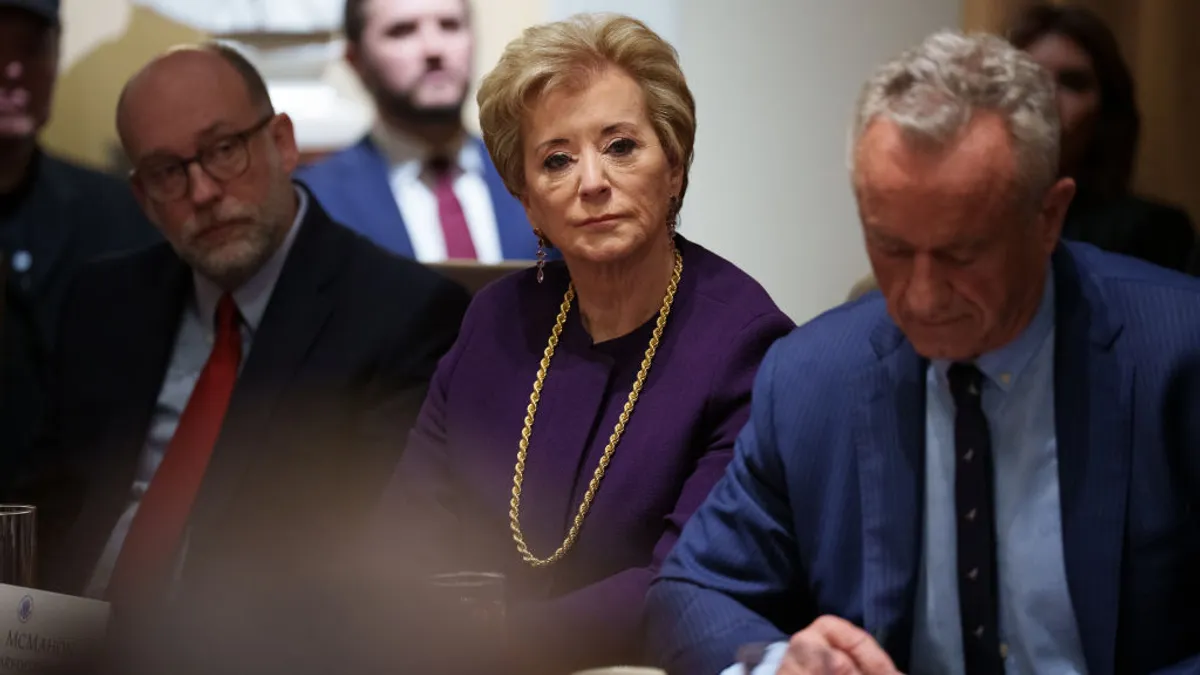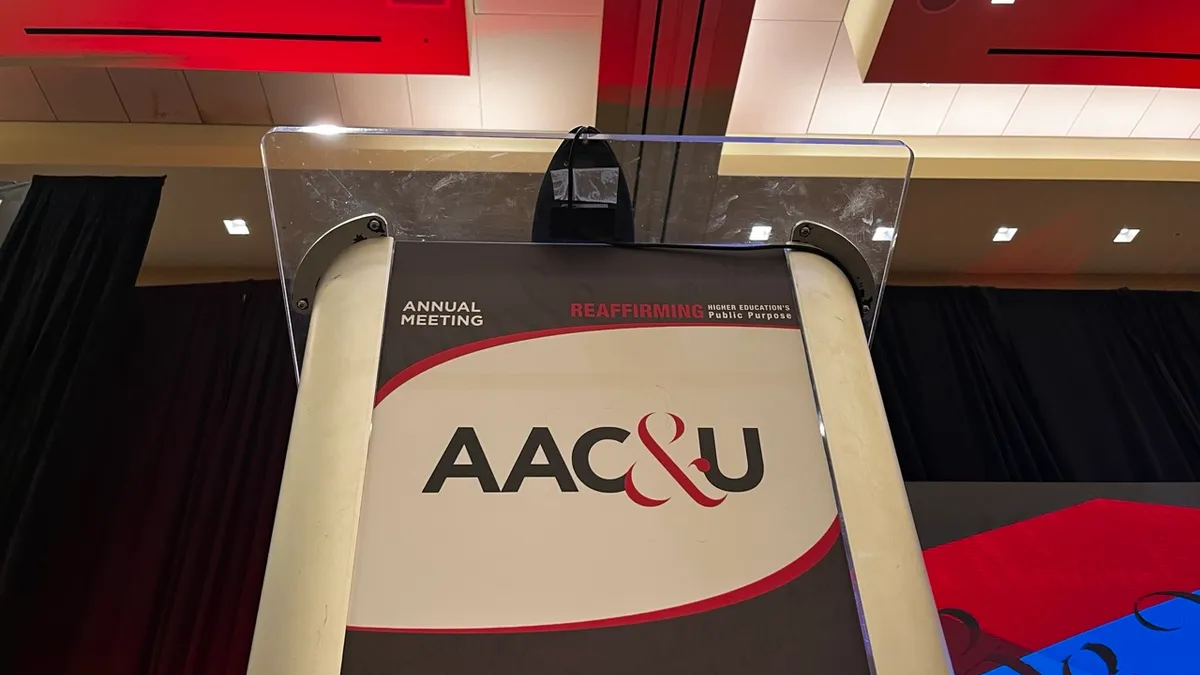Jenny Petty is vice president for marketing and communications at the University of Montana. Teresa Valerio Parrot is founder and principal of TVP Communications.

If you consider yourself a thought leader or if others look to you for expertise on the conference stage, in podcasts, or in written word, you have an undefined and ambiguous role that is still incredibly valuable when done with foresight and accountability.
The role comes with professional responsibilities.
Many people know how important — and powerful — thought leadership platforms can be in higher education, but it can be unclear how to best approach them. By sharing your ideas with the public, you suggest they are worthy of colleagues’ consideration for themselves, their teams and their institutions, and that the content and any advice you provide is sound. Therefore, it’s essential to perform due diligence with fact-checking details and to identify bad actors in advance. This ensures you’re not making yourself too vulnerable or misaligning your values, expertise or institution.

While some media outlets include editorial review of thought leadership content, others — including reputable national outlets — don’t have that same level of assessment or accountability. There are even opportunities in which individuals can pay to be thought leaders in marquee publications. The fact that an opportunity is paid doesn’t make it inherently bad, but it does add another layer of risk when many of those opportunities don’t include a review that would flag questionable content.
Based on the proliferation of thought leaders and thought leadership spaces in the past few years, we have recommendations for higher ed leaders who contribute to professional conversations and those who review content created by their peers and mentors.
Be straightforward with your advice. If you have advice or recommendations, say it clearly and include depth and details. Even better, back up your informed opinion with data or evidence whenever possible. Your thought leadership platform is not the place for vague, fortune cookie language that allows the audience to interpret as they see fit.
Clarity can prevent your audience from misunderstanding your intent and then have them broadcasting that misinterpretation further, which might lead others to be more vulnerable rather than stronger.
Be mindful of your intentions. We encourage you to use your voice to help others and advance your profession. This means focusing content on your expertise, experiences and professionalism. Authenticity is critically important for growing your audience long term on any platform. Thus, we discourage saying something purely for shock value that isn’t aligned with who you are or what you believe.
That op-ed, Twitter thread or listserv comment may garner short-term attention and drive likes and shares, but once you express that idea it may live with you longer than you intend. If your comment was shared as a joke, remember that humor rarely translates well in thought leadership and is best edited out.
Share your expertise and lift others up. In higher education, being scholarly means contributing to existing work or creating new work — and we apply the same standards to our thought leadership contributions. With your writing and comments, you can move beyond parroting existing ideas and instead own your thoughts and provide professional contributions to your industry.
If you do reference the expertise and ideas of your colleagues, be sure to credit them for their contributions to the field. It’s the right thing to do, and it allows you to identify them as someone to network with. It may also lead to opportunities of their own.
Consider the ramifications of your advice. When we offer advice or an opinion, we’re drawing on our own experiences, and those may not be applicable to our whole audience or every scenario. Our recommendations and call to action may not fit on every campus, and we need to consider the fallout before we offer blanket “must-do” guidance. While we know, or at least hope, that our colleagues will perform their due diligence before implementing others’ advice, in some instances, there could be serious legal consequences for individuals who implement guidance. Giving poor advice can diminish the political and social capital of those who implement your guidance, which fares poorly for both of you.
Understand social media provides unmoderated options for sharing your expertise and thoughts. We understand the balancing act we all perform on social media as we try to maintain the equilibrium between our personal and professional lives. And we like to think of ourselves as humorous online, too. But we shift away from an easy joke once we know we are being sought for our expertise outside of social media.
Instead, we use what would have been an opportunity for humor to provide context or clarity. Unless we are writing a first-person account or being asked about ourselves outside of work, we try to maintain professionalism with opportunities provided by the media. After all, we serve as ambassadors for our institutions in those opportunity-laden moments.
Be courteous to your colleagues. There are gracious ways to share examples of what works and what doesn’t without making others vulnerable or calling them out publicly. While most written pieces are made stronger by including examples, a gifted writer will always find a way to make their point and reference examples without shaming others or making them vulnerable to ridicule.
With the advent of social media, mistakes — or perceived missteps — live on indefinitely. It’s a bad look to call others out publicly, and it’s dangerous not to recognize the consequences for the people targeted. Compassion goes a long way. We are noticing a trend specifically of marketing, communications and higher education hit pieces that leave us and many others questioning the treatment of our profession and its people — and this behavior diminishes trust in those standing on that soapbox. As such, remember that examples can be positive and highlight what works, even when talking about topics that have negative connotations.
We have a few final thoughts. While there are no thought leadership police who will cite you for offenses, we have a moral obligation to each other to provide sound guidance when in a leadership role. Academia is a small world where everyone knows everyone else; therefore, we encourage you to use your position as a leader to give advice that will stand the test of time, encourages others to shine and positions colleagues for success. And when they follow your thought leadership to get there, their buoyed position can raise your profile, too.




















